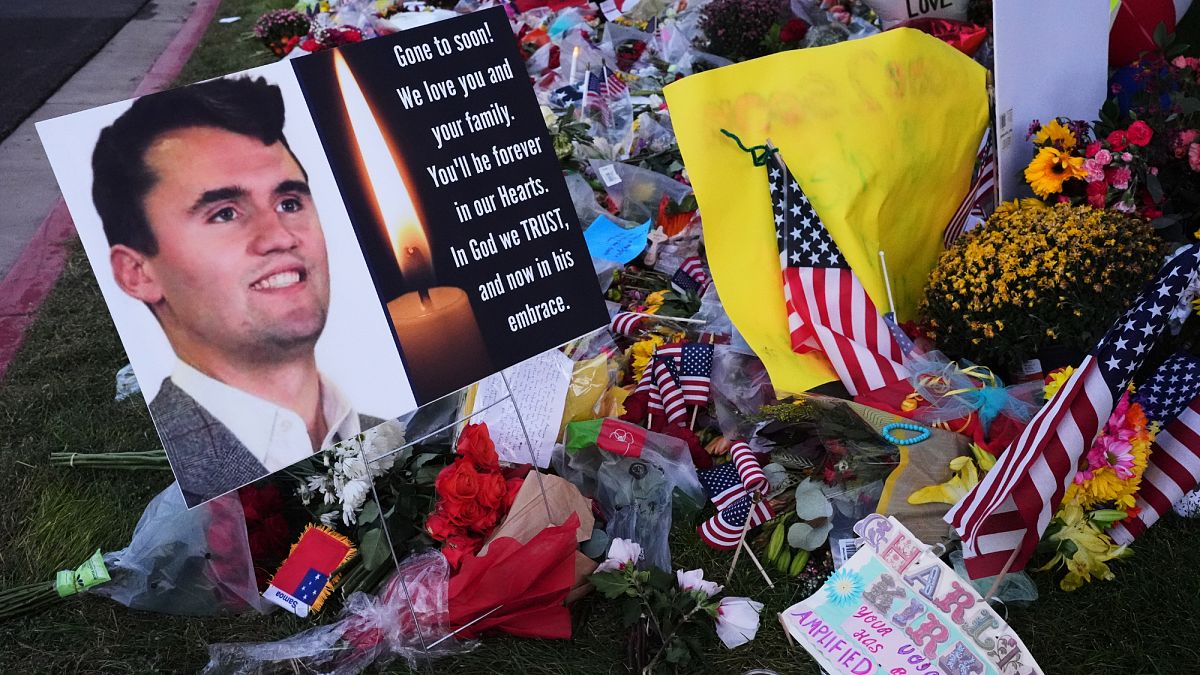Published on
The European Parliament should condemn the recent murders of American conservative political activist Charlie Kirk and Ukrainian refugee Iryna Zarutska, according to a resolution tabled by 84 right wing MEPs and seen by Euronews.
The shooting of Kirk in Utah on 10 September and the stabbing of Zarutska in North Carolina in August have been heavily condemned by US President Donald Trump.
Kirk’s killing has also become a point of discussion in Europe, with some leaders expressing their condolences. Italy’s Prime Minister Giorgia Meloni called it “shocking” and “a deep wound for democracy”, while European Parliament President Roberta Metsola said she was “shocked at the absolutely horrific assassination”.
A clash also took place last Thursday during a plenary session of the European Parliament in Strasbourg, when an MEP from the right wing Sweden Democrats party called for a minute’s silence to commemorate Kirk’s death, which was denied by vice-president of the Parliament, Socialist MEP Katarina Barley.
Now several right-wing lawmakers want an official resolution to be voted on by the Parliament, expressing solidarity with the victims’ families and calling for “zero tolerance” toward political and extremist violence.
The resolution was promoted by two Italian members of the far-right Patriots for Europe (PfE) group, Susanna Ceccardi and Paolo Borchia (The League). “These brutal killings shock our consciences and show how political violence and ideological hatred can strike indiscriminately,” declared Ceccardi and Borchia, in a joint statement seen by Euronews.
“Violence, ideological hatred, and political intimidation must be opposed with zero tolerance in all democratic societies,” reads the text, stressing that “media should report such attacks honestly without soft-pedalling or suppressing information”.
Other signatories of the resolution come mostly from the PfE group, but also from the European Conservatives and Reformists, like Poland’s Dominik Tarczynski, Italy’s Carlo Fidanza, and Sweden’s Charlie Weimers.
Now the resolution will be checked by the Parliament’s President Roberta Metsola’s office. Then, it is ultimately up to the Conference of Presidents, a body formed by the presidents of Parliament’s political groups, to decide whether it will be on the agenda of the next plenary session, to be held in Strasbourg from 6 to 9 October.
Other political groups have been asked for their positions on such a resolution.

